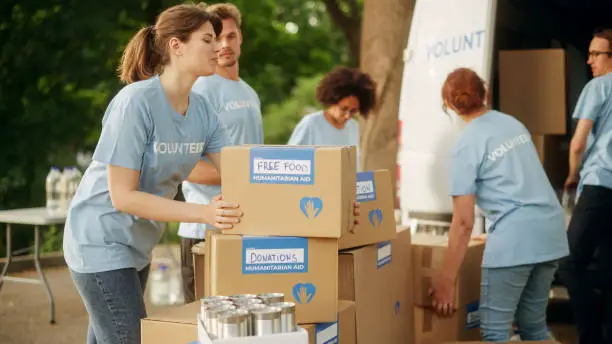As our population ages, more and more elderly individuals find themselves needing financial assistance to support their well-being and improve their quality of life. Whether it’s for health care, home modifications, education, or social engagement, there are a variety of grants for elderly people. These grants can provide a lifeline to seniors, ensuring they have access to necessary resources in their later years.
Understanding the options and the process of applying for grants can sometimes feel overwhelming. But don’t worry — you’re not alone!
In this comprehensive guide, we’ll break down everything you need to know about grants for elderly people, from eligibility criteria to where to apply, and how you can improve your chances of securing the funding.
We’ll also share valuable tips and strategies to make the grant application process smoother and more successful.
What Are Grants for Elderly People?
Grants for elderly people are financial awards provided to seniors to help cover costs associated with aging. Unlike loans, these grants do not require repayment, making them an invaluable resource for maintaining independence and quality of life during the golden years.
These grants are typically offered by government agencies, nonprofit organizations, and private foundations.
Some of the most common uses for these grants include:
- Health care support: From prescription medications to medical devices and assisted living, elderly individuals may need grants to manage their health.
- Housing assistance: Grants can help seniors modify their homes for better accessibility or pay for housing costs.
- Education and employment: Some grants are designed to help older adults access training programs or education to continue working or learning.
- Social engagement: Grants may help seniors participate in activities that promote social interaction, reducing loneliness and depression.
Types of Grants Available for Elderly People
While many grants are designed for the elderly, it’s important to know that these financial aids come in different forms. Below are some of the most common types of grants available for elderly individuals:
1. Government Grants
The U.S. government offers several programs to assist seniors, primarily through the Department of Health and Human Services (HHS) and the Administration for Community Living (ACL). The grants provided by these agencies aim to support the elderly in managing health care needs, finding suitable housing, and accessing community services.
For instance:
- The Low-Income Energy Assistance Program (LIHEAP) helps elderly people pay their energy bills, keeping their homes warm in winter and cool in summer.
- The Senior Farmers’ Market Nutrition Program (SFMNP) offers seniors vouchers for purchasing fresh fruits and vegetables at local farmers’ markets, promoting better nutrition and health.
- The Older Americans Act (OAA) Title III provides funding for home and community-based services, helping seniors live independently.
- The Supplemental Security Income (SSI) program offers financial assistance to elderly individuals with limited income and resources.
A reliable resource to check for federal grants is Grants.gov, where you can search for specific opportunities by funding agency or category. Additionally, Benefits.gov is another helpful website that allows seniors to search for government benefits, including grants.
2. Nonprofit and Private Foundation Grants
Numerous nonprofit organizations and private foundations provide grants to help elderly people. These grants are usually targeted toward improving seniors’ quality of life through various support programs.
Some well-known foundations include:
- AARP Foundation: This foundation offers various programs to help seniors facing financial hardship, housing instability, and health challenges. Their Tax-Aide program also provides free tax preparation assistance to low-income individuals.
- The Retirement Research Foundation: Focuses on improving the well-being of older adults through grants for health, education, and social services.
- The John A. Hartford Foundation: Dedicated to improving care for older adults, this foundation funds programs that enhance the quality of life for seniors.
- The Harry and Jeanette Weinberg Foundation: Provides grants to organizations that support low-income seniors, particularly those facing housing insecurity.
Each foundation has its own eligibility criteria and application process, so it’s crucial to visit their websites for detailed information. One example of a great nonprofit resource is The National Council on Aging (NCOA), which helps seniors find financial assistance for a variety of needs, including healthcare, housing, and employment.
3. State and Local Grants
Many states and local governments offer financial assistance to elderly residents through various grant programs. These programs are typically administered by State Departments of Aging or other local government agencies. These grants often help seniors with their living expenses, including rent, utilities, and medical costs.
For example:
- The Weatherization Assistance Program (WAP): A federal program run by local agencies to help low-income seniors weatherproof their homes to reduce heating and cooling costs.
- Senior Nutrition Programs: Offered by local Area Agencies on Aging, these grants help fund meal delivery and communal meal programs for seniors.
- State Pharmaceutical Assistance Programs (SPAPs): Help eligible seniors with the cost of prescription medications.
- Home and Community-Based Services (HCBS) Waivers: Allow states to provide long-term care services in home and community settings rather than institutional settings.
To find state and local grants, visit your state’s Department of Aging website or contact your local Area Agency on Aging. Websites like 211.org can also connect you to local resources and assistance programs.
How to Find Grants for Elderly People
Finding the right grants for elderly people can be challenging if you’re not sure where to look. Fortunately, there are several resources and strategies you can use to identify grant opportunities:
1. Use Government Grant Databases
As mentioned earlier, Grants.gov is an essential tool for locating federal grants. This platform lets you search for various grant opportunities, including those aimed at elderly individuals. You can filter the results by program type, eligibility, and funding agency.
Additionally, Benefits.gov allows seniors to search for government benefits, including grants. By creating a personalized benefits search, you can discover programs you may qualify for based on your specific circumstances.
2. Contact Local Agencies
Local Area Agencies on Aging (AAAs) are often the best place to find specific grants tailored to seniors in your area. They can help seniors apply for state and local programs, and they often have access to exclusive grants that are not listed online. AAAs also provide counseling and support services to help navigate the application process.
3. Explore Foundation Websites
The Foundation Center and Candid are two excellent online databases that allow you to search for grants offered by private foundations. These databases list thousands of grant-making organizations, and you can filter the results to find those specifically supporting seniors. By using these resources, you can identify foundations that align with your needs and learn about their application processes.
4. Nonprofit Organizations
Nonprofits such as The National Council on Aging (NCOA), AARP, and ElderCare Locator offer guides and resources to help elderly individuals locate relevant grant programs. These organizations are often the best sources of information regarding specific needs like home modifications, transportation, and medical care. Additionally, many nonprofits host workshops and seminars on grant writing and application strategies.
5. Libraries and Community Centers
Local libraries and community centers often have resources and information about available grants. Librarians can assist you in finding relevant materials, and community centers may host informational sessions or have bulletin boards with grant opportunities. These venues can also connect you with local support networks and peer groups who can share their experiences and tips.
How to Apply for Grants
Once you’ve found a grant for which you’re eligible, the next step is to apply. The application process can vary depending on the grant provider, but here are some general tips to improve your chances of success:
1. Understand Eligibility Criteria
Each grant will have different eligibility requirements, such as age, income level, or specific needs. Be sure to read the guidelines carefully to ensure you meet all the necessary conditions before applying. Common eligibility factors include:
- Age: Typically, grants are available to individuals 60 years and older, but some programs may have different age thresholds.
- Income Level: Many grants are need-based, requiring applicants to fall below a certain income threshold.
- Residency: Some grants are restricted to residents of specific states or localities.
- Health Status: Certain grants may target individuals with specific health conditions or disabilities.
- Purpose of Grant: Grants may be designated for particular uses, such as home modifications, education, or medical expenses.
2. Prepare Documentation
Most grant applications require documentation to verify your eligibility, such as proof of age, income statements, or medical records. Gather all the necessary paperwork ahead of time to avoid delays in your application process. Common documents you may need include:
- Proof of Age: Birth certificate, driver’s license, or other official ID.
- Proof of Income: Tax returns, Social Security statements, or pension statements.
- Medical Records: If applying for health-related grants, you may need documentation from healthcare providers.
- Housing Information: Lease agreements or property ownership documents if applying for housing assistance.
- Letters of Recommendation: Some grants may require letters from community leaders or healthcare providers.
Having these documents organized and readily available will streamline the application process and reduce the risk of missing important information.
3. Write a Strong Proposal
Many grant applications will ask for a proposal or description of how the funds will be used. For seniors applying for grants for home repairs, for example, the proposal should clearly outline how the funding will help with safety improvements, accessibility, or medical needs. Here are some tips for writing an effective grant proposal:
- Clearly Define the Need: Explain why you need the grant and how it will address a specific problem or need in your life.
- Outline Your Plan: Describe how you intend to use the funds, providing detailed information about the projects or expenses you plan to cover.
- Demonstrate Impact: Highlight the positive outcomes that will result from receiving the grant, such as improved health, increased independence, or enhanced quality of life.
- Be Concise and Focused: Keep your proposal clear and to the point, avoiding unnecessary jargon or lengthy explanations.
- Provide Supporting Evidence: Use data, statistics, and personal stories to strengthen your case and demonstrate the urgency of your needs.
4. Stay Organized
Keep a record of all the grants you apply for and the deadlines associated with them. Some grants are recurring, so tracking your applications and follow-ups is crucial for future opportunities. Creating a spreadsheet or using a grant management tool can help you stay on top of:
- Application Deadlines: Note when each grant application is due and set reminders to ensure you submit on time.
- Required Documents: List all necessary documents for each grant to ensure you have everything ready.
- Status Updates: Track the progress of each application, noting when you submitted it and any follow-up actions needed.
- Contacts and Resources: Keep contact information for grant providers and any support resources you may need during the application process.
Common Pitfalls to Avoid
While applying for grants can be rewarding, there are a few common mistakes seniors often make that can hinder their success:
- Incomplete Applications: Failing to provide all requested information or documentation can result in an automatic denial. Double-check each application to ensure all sections are fully completed and all required documents are included.
- Missed Deadlines: Be mindful of application deadlines and allow plenty of time to gather all necessary documents. Setting reminders and starting the application process early can help prevent last-minute stress and missed opportunities.
- Ignoring Eligibility Rules: Make sure that you meet all the eligibility requirements for each grant program. If you’re unsure, don’t hesitate to contact the grant provider for clarification. Applying for grants you’re not eligible for can waste time and reduce your chances of success for other opportunities.
- Weak Proposals: A poorly written proposal that doesn’t clearly explain your needs or the impact of the grant can weaken your application. Invest time in crafting a compelling narrative that highlights your situation and how the grant will make a difference.
- Lack of Follow-Up: After submitting your application, follow up with the grant provider to confirm receipt and inquire about the timeline for decisions. This shows your commitment and keeps you informed about the status of your application.
Grant Writing Tips for Elderly People
Writing a grant proposal can feel overwhelming, but with the right guidance, you can make the process easier. Here are some tips that will help improve your chances of success:
- Be Clear and Specific: Funders want to know exactly how their money will be used. Make sure your proposal explains the need for the grant in clear terms. Avoid vague statements and provide detailed information about your circumstances and how the grant will help.
- Show the Impact: Demonstrating how the grant will benefit not only you but the wider community can increase your chances of receiving funding. Explain how your project or needs align with the grant provider’s goals and objectives.
- Stay Professional: Even though grants are often awarded to individuals, it’s important to treat your application with professionalism. Be respectful, clear, and concise in all communications. Use proper grammar and formatting to present a polished and credible application.
- Use Data and Evidence: Incorporate relevant data and evidence to support your proposal. This could include statistics about the challenges you face, testimonials from healthcare providers, or information about the benefits of your proposed project.
- Customize Each Application: Tailor each grant application to the specific grant provider’s requirements and priorities. Generic applications are less likely to stand out, so take the time to address how your needs align with the funder’s mission.
- Seek Feedback: Before submitting your application, ask someone you trust to review it. Feedback from others can help you identify areas for improvement and ensure your proposal is clear and compelling.
- Stay Positive and Persistent: Grant writing can be a competitive process, and rejection is common. Stay positive, learn from each application experience, and keep applying for opportunities that match your needs.
How Grant Writing Academy Can Help
At Grant Writing Academy, we provide resources, templates, and expert strategies to help individuals and organizations navigate the grant writing process. By subscribing to our Grant Writing Academy Newsletter, you will gain access to tips, tools, templates, and expert advice on how to increase your success rates with grants for elderly people.
Here’s how Grant Writing Academy can support you:
- Comprehensive Guides: Our step-by-step guides walk you through every aspect of grant writing, from identifying the right grants to crafting compelling proposals.
- Expert Tips and Strategies: Learn from experienced grant writers who share their insights on what works and what doesn’t in the grant application process.
- Templates and Tools: Access ready-to-use templates for proposals, budgets, and letters of recommendation to streamline your application process.
- Webinars and Workshops: Participate in live sessions where you can ask questions, get personalized advice, and connect with other grant seekers.
- Success Stories: Read about real-life examples of seniors who successfully secured grants, and learn from their experiences and strategies.
- Ongoing Support: Receive regular updates and resources to keep you informed about new grant opportunities and best practices in grant writing.
We understand how vital financial support can be, especially for elderly individuals who need assistance to maintain their independence and health. If you’re looking to secure a grant or just want to learn more about how the process works, we’re here to guide you every step of the way.
Real-Life Examples of Successful Grant Applications
To illustrate the power of grants for elderly people, let’s explore some real-life examples of seniors who successfully secured funding and improved their lives:
Example 1: Home Modification Grant
Mary, a 72-year-old widow, struggled with mobility issues after a fall. Her home had multiple stairs and narrow doorways, making it difficult for her to move around safely. Mary applied for a home modification grant through the Administration for Community Living (ACL). With the grant money, she was able to install a wheelchair ramp, widen doorways, and add grab bars in the bathroom. These modifications significantly improved her safety and independence, allowing her to stay in her home comfortably.
Example 2: Health Care Support Grant
John, an 80-year-old veteran, was facing high medical expenses due to chronic health conditions. He applied for a health care support grant from the Veterans Health Administration (VHA). The grant covered the costs of his prescription medications and specialized medical equipment. This financial assistance relieved a significant burden, enabling John to focus on his health without worrying about the overwhelming costs.
Example 3: Educational Grant
Eleanor, a 65-year-old retired teacher, decided to pursue a degree in social work to help other seniors in her community. She applied for an educational grant through the AARP Foundation. The grant covered her tuition fees and provided funds for books and supplies. Eleanor successfully completed her degree and now works as a social worker, providing valuable support and resources to elderly individuals in need.
Maximizing Your Grant Opportunities
To maximize your chances of securing grants for elderly people, consider the following strategies:
1. Start Early
Begin researching and preparing your grant applications well in advance of deadlines. Early preparation gives you ample time to gather necessary documents, seek feedback, and refine your proposals.
2. Build Relationships
Establish connections with grant providers, local agencies, and nonprofit organizations. Building relationships can provide you with insider knowledge about upcoming grants and increase your chances of receiving personalized support.
3. Stay Informed
Keep up-to-date with new grant opportunities by regularly checking websites like Grants.gov, Benefits.gov, and the National Council on Aging. Subscribing to newsletters and following relevant organizations on social media can also help you stay informed.
4. Leverage Technology
Use grant management tools and software to organize your applications, track deadlines, and store important documents. Tools like GrantStation and Foundation Directory Online can streamline your search for grants and improve your application process.
5. Seek Professional Help
If you find the grant writing process challenging, consider seeking professional assistance. Organizations like Grant Writing Academy offer expert guidance and support to help you craft strong applications and navigate the complexities of grant writing.
The Importance of Grants for Elderly People
Grants play a crucial role in enhancing the lives of elderly individuals by providing financial support that addresses various needs. Here are some key reasons why grants are important for seniors:
- Promote Independence: Grants for home modifications, transportation, and personal care services enable seniors to live independently, reducing the need for institutional care.
- Improve Health and Well-Being: Health care support grants ensure that seniors have access to necessary medical treatments, medications, and wellness programs, promoting better health outcomes.
- Enhance Quality of Life: Grants for social engagement and recreational activities help seniors stay active, socially connected, and mentally stimulated, reducing the risk of isolation and depression.
- Support Financial Stability: Financial assistance through grants can alleviate the burden of living expenses, medical costs, and other financial challenges, providing seniors with greater financial security.
- Encourage Lifelong Learning: Educational grants empower seniors to pursue new interests, gain new skills, and contribute to their communities, fostering personal growth and fulfillment.
Future Trends in Grants for Elderly People
As the population continues to age, the demand for grants and financial support for elderly individuals is expected to grow.
Here are some future trends to watch for:
- Increased Focus on Technology: Grants may increasingly support technology solutions that help seniors stay connected, manage their health, and live independently. This includes funding for telehealth services, smart home devices, and assistive technologies.
- Holistic Health Programs: Future grants might emphasize holistic approaches to health and well-being, integrating physical, mental, and social health services to provide comprehensive support for seniors.
- Expanded Home and Community-Based Services (HCBS): There will likely be a continued emphasis on expanding HCBS grants to help seniors remain in their homes and communities rather than moving to institutional settings.
- Intergenerational Programs: Grants may support programs that foster connections between seniors and younger generations, promoting mutual support, knowledge sharing, and community cohesion.
- Sustainable and Green Initiatives: As environmental concerns grow, grants for elderly individuals may include funding for sustainable home modifications, energy-efficient appliances, and green living solutions.
Conclusion
Grants for elderly people are an excellent way to secure the financial assistance necessary to enhance quality of life, access medical care, or modify homes for greater independence.
With the help of resources like Grant Writing Academy, seniors can become empowered grant writers, confidently pursuing financial opportunities to make their golden years as fulfilling as possible. Stay connected with us for continuous tips, strategies, and templates to guide you toward success in your grant journey.
Sources and Links
- Grants.gov
- Benefits.gov
- AARP Foundation
- The National Council on Aging (NCOA)
- Foundation Center
- Candid
- ElderCare Locator
- Grant Writing Academy
- Older Americans Act (OAA)
- Low-Income Energy Assistance Program (LIHEAP)
- Senior Farmers’ Market Nutrition Program (SFMNP)
- Weatherization Assistance Program (WAP)
- State Pharmaceutical Assistance Programs (SPAPs)
- Home and Community-Based Services (HCBS) Waivers




